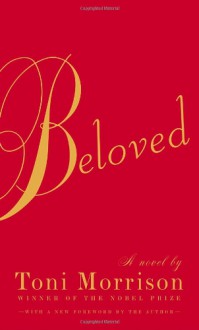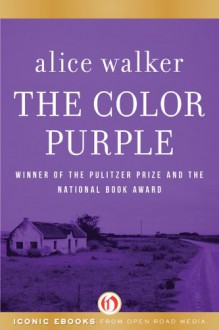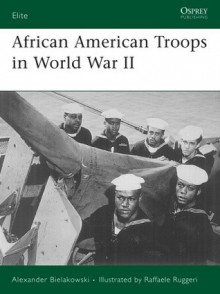
Lettie has always felt different from and overshadowed by the women around her– this friend is richer, that friend is more beautiful, those friends are closer. Still, she doesn’t let this hold her back. She works hard to apply her mind, trying to compensate for her perceived lack of beauty with diligent academic work and a successful career as a doctor. She learns to treasure her friendships, but she still wonders if any man will ever return her interest. Marco’s experience in the second world war have robbed him of love and health. When winters in his native Italy prove dangerous to his health even after the war has ended, he moves to South Africa to be with his brother, husband to one of Lettie’s best friends. Marco is Lettie’s first patient, and their relationship grows as she aids him on the road back to restored health. In the company of beloved characters from The Child of the River, Marco and Lettie find a happiness that neither of them thought possible. With that joy comes pain and loss, but Lettie learns that life—while perhaps a crooked path—is always a journey worth taking.
Amazon.com
As a child, Lettie Louw struggles with the beauty and success of so many women around her, close friends included, leaving her with a distinct feeling of being "less than". With her thick glasses and overweight frame working against her, Lettie can't seem to catch the eye of her secret crush, De Wet Fourier, who also happens to be the older brother of Lettie's good friend Klara.
After having her heart crushed the night Lettie spots De Wet making out with another of Lettie's friends, Annabel, she makes the choice to just take her mind off men altogether. The rest of her high school years, she dedicates herself to her studies. As the years of WW2 approach, Lettie watches her circle of friends go off to jump into wartime experiences while she hangs back to follow in the footsteps of her father and attend medical school. During her time in college, Lettie occassionally tries going on dates, but often re-experiences the sensation of being passed over by guys who see the better opportunity girl down the lane. Once again, she finds comfort in burying herself in studies.
Henceforth, she decided, men would be colleagues, maybe friends. Nothing more. Because men cause pain, intense pain -- especially handsome, friendly men.
From there the story breaks away from Lettie's world to introduce the reader to the story of Marco and Rachel. Marco Romanelli is an Italian Catholic who meets Russian Jew Rachel Rozenfeld when her family moves to his town in Italy. Despite their religious differences, Marco wins Rachel's heart only to face possibly being separated and imprisoned with the invasion of the Nazi Party. Marco survives the war years but takes with him a chronic lung condition that will plague him the rest of his life. Struggling to maintain his health in his native Italy, it's decided he would benefit from a move to the drier climate of South Africa, where one of his brothers has already settled into a relationship with one of Lettie's friends. This novel may have a rather circuitous feel to the reader, but consider the main theme of the novel: "Even a crooked path leads somewhere." Joubert make take the long way 'round at times but I promise, it's all interconnected.
By the time Marco arrives in South Africa, Lettie is a full-fledged doctor fresh out of school. Marco becomes her first official patient.
SIDE RANT: Can I have just a minute to say how AGGRAVATING it was how hung up this town was on her "awkward" period? The girl keeps her nose to the grindstone, pushes herself through med school, becomes the town's first female doctor. Once she starts making some money, she wants to treat herself a bit, get herself some nice dresses, get her hair done now and then.... and what happens whenever she goes into the shops? "Hey, remember when you used to be such a weird, ugly fat kid? Lookatcha now! But seriously, you were so awkward back in the day...." ALL THE TIME WITH THIS. I guess maybe this bugged me because I go through something similar whenever I visit my hometown lol... You just want to scream, hey thanks for bringing up one of the most painfully long periods of my life... repeatedly... get over it! People grow up! Okay, anyway....
A slow but deep bond grows between them. Marco realizes that while he thought he had found love before, there's a distinct difference between first rushed love and an honest soulmate who just truly "gets" you. When you find that person where you never have to explain or make excuses for anything about yourself, that's not something to be taken lightly! Lettie, though she doesn't disagree, takes a little more convincing to push past her concerns of the need of professional distance. But life eventually sorts itself out and we're carried through a number of years until the next big upset of Lettie's life. More tragedy, more heartbreak to navigate, before Lettie's own crooked path eventually leads her back to Marco's hometown in Italy. Though it only starts out as a vacation with friends, this trip will reveal a new life path to her she could've never anticipated.
Following Lettie from girlhood to retirement years, it's quite the whirlwind of relatable emotions the reader travels through with this one! Not only through Lettie, but also the stories of the other ladies as they grow up together --- Annabel, Klara, Christine --- through all of them combined it's a powerful reading experience, seeing how relationships develop, grow, even change as we age... sometimes forcing us to face the reality that the adult / older version of a friend may not live up to the warmth the memory of their childhood version instilled in us. How far does one take a friendship before one or both parties might have to admit defeat and say the relationship is irreparable? As Lettie comes to find out for herself, from time to time that process could include the lesson that what may feel like a dead-end or some other sort of stagnation in life might actually be just a preparatory pause for the next big thing!
If you read and enjoyed Joubert's previous novel, Child of the River, showcasing the relationship development of Persomi and Boelie, more of their story is offered up (in the background plot) here in The Crooked Path.
FTC Disclaimer: TNZ Fiction Guild kindly provided me with a complimentary copy of this book in exchange for an honest review. The opinions above are entirely my own.
____________
MY REVIEWS FOR THE PREVIOUS BOOKS IN THIS SERIES:
*Note: Though some of the characters carry over between books, the connections are loose enough that these stories can be read as stand-alones.
THE GIRL FROM THE TRAIN
CHILD OF THE RIVER


 Log in with Facebook
Log in with Facebook 



















